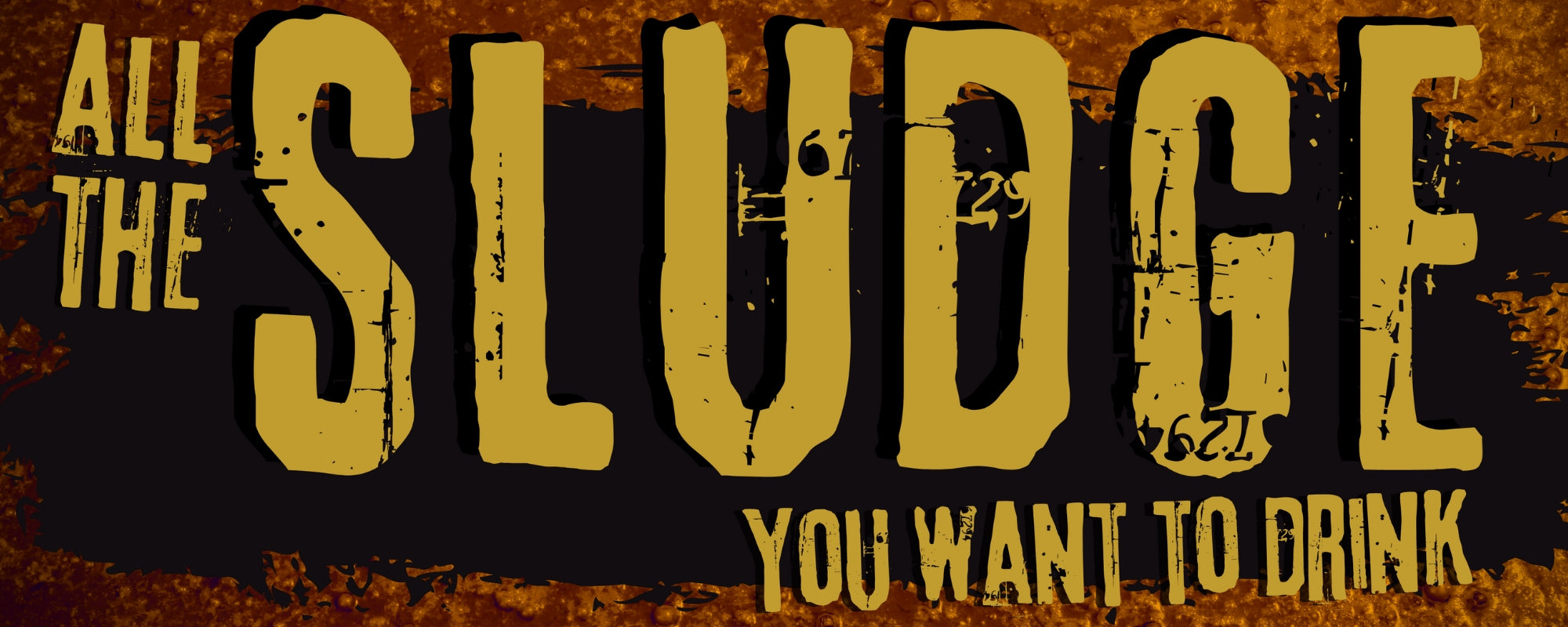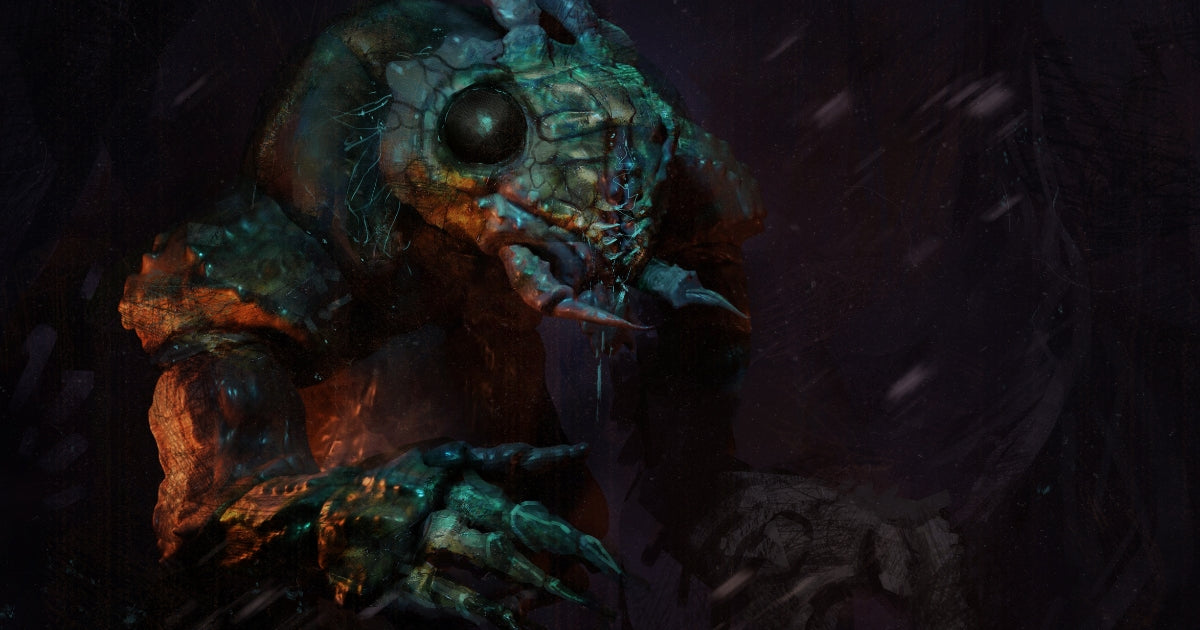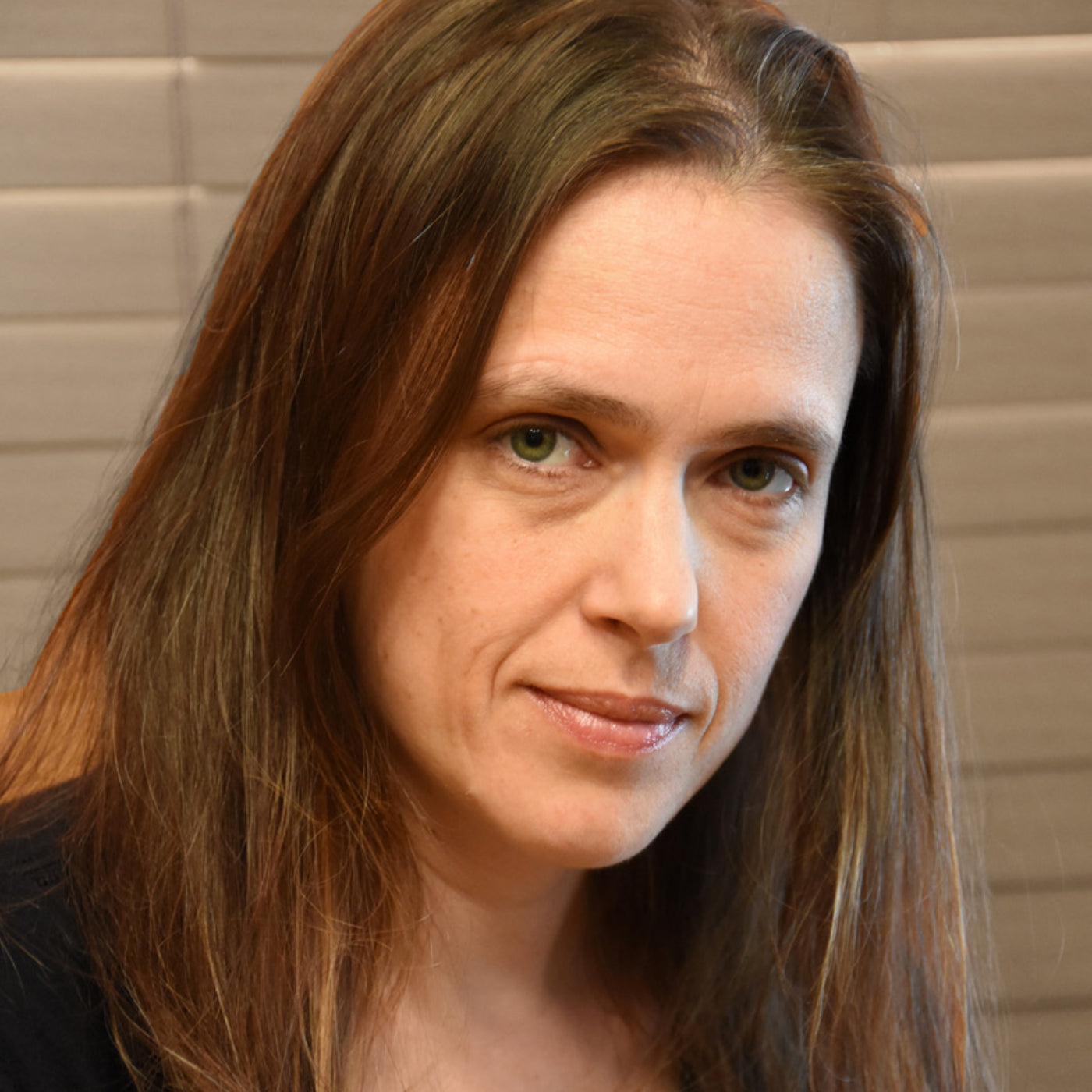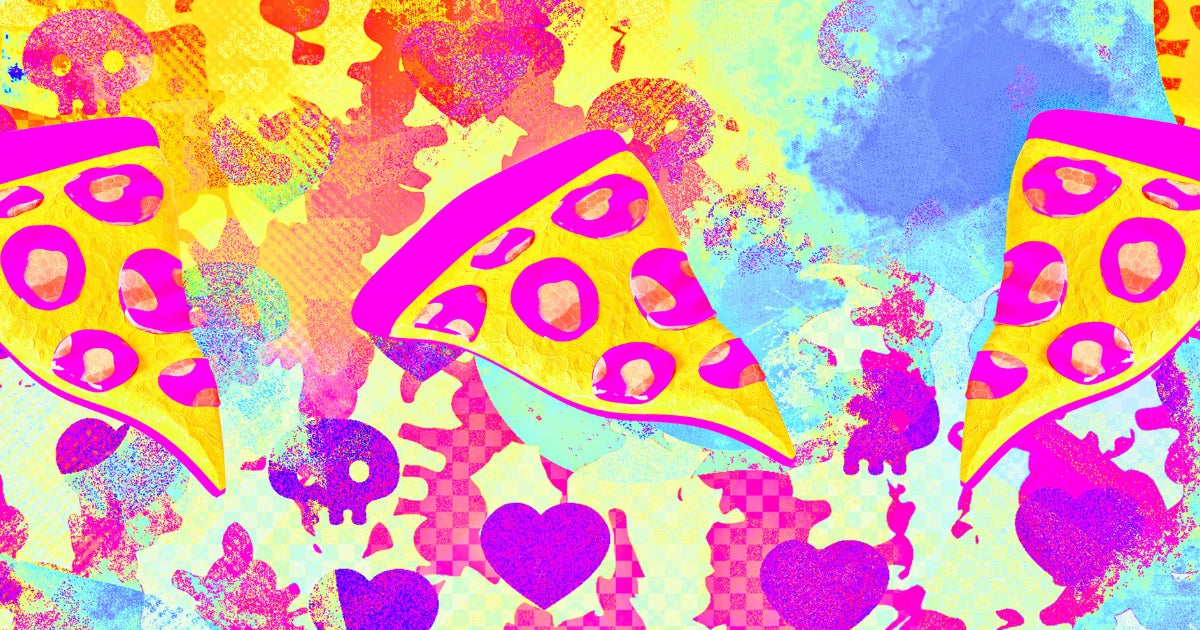

All the Sludge You Want to Drink
By Mary G. Thompson
I leave the break room with my mug in hand, filled to the brim with sludge. Like everything else around here, it’s brown. It tastes exactly like you’d expect something people call sludge to taste: bitter, sour, acidic. The texture is granular. It’s like drinking cement mixed with dirt mixed with the bodies of slugs. A little bit runs over the edge of my mug, and I lick it off. I savor the flavor on my tongue.
When you’re hungry, any flavor is good. One lick, and I want more. I want to rush back to the break room, slurp what’s left from my mug, and refill it. But my break is over. I’m almost late. If I get back late, they’ll punish everyone. They’ll turn the spigot off for hours.
I speed walk through the narrow hallway, barely wide enough for my shoulders. The walls, floor, and ceiling are as brown as the sludge. The lighting is low, but I’m used to it. Just like I’m used to the recycled air. At least it’s better than the air outside, which isn’t breathable. If our Friends hadn’t built the enclaves, their terraforming would have killed us. It’s better to live in here than die out there. How many times has my dad said that to me? Now I hear it in my own voice.
I get back to my desk just as my computer starts beeping, the light on top flashing red.
“I know, I know,” I say under my breath, pressing the button.
Three coworkers glare at me over their cubicle dividers. I mouth, sorry. Hopefully those few seconds didn’t attract any attention. I look around the room, but the only one of them I see is Nice Guy. That’s what I call him anyway. Who knows what his real name is? Some combination of clicking and hissing that I can’t understand. Nice Guy’s about my height, five foot ten, with a black exoskeleton and seven legs. The seventh, uneven leg, is shorter and protrudes from the neck. He’s wearing a large breathing mask over his face, so all I can see is one of his seven eyes.
He winks at me.
I raise a hand in thanks and sit down at my computer. I take a long sip of sludge.
My dad’s description of chicken eggs pops into my head: They had a part that was white and a part that was yellow. You could boil them or scramble them or fry them. You could eat them in a sandwich, which was a food with several ingredients. A food you chewed.
Beep. A notification on my terminal. I need to get to work now, or even Nice Guy will come after me. I have to process these tokens and assign rations for this week’s delivery in enclave San Francisco. Fourteen thousand souls are packed into a quarter of a mile square, and all of them have to prove they’ve performed sixty hours of work for each ration cre it. So if you’re, say, a parent with one kid, you and/or your kid have to work 120 hours for enough sludge rations for two people. They do the work, it’s certified by a Friend, and then I assign the corresponding tokens and order the ration delivery. It’s more efficient to centralize it all here than to handle the processing at each location.
Human number 54-3659 is certified for 83 hours of labor by a Friend in Sector 87. I’ve worked here for six years now, so I’m pretty good at matching the numbers to people. 54-3659 is Melissa Vorhes. She has two children, and the father, Gerold Vorhes, died last year of a respiratory disease, most likely caused by his own work in Sector 87. Those space suits they give them aren’t perfect. Some of the damn atmosphere always gets in. Per regulation, Melissa is entitled to 1.38 credits.
I take another sip of sludge. It slides down my throat. Dad told us that in the beginning, people used to throw it up. Some people could stomach it but refused to drink. They died.
There’s one flaw in the Friends’ credit system. It would be nearly impossible for me to alter the certification for anyone who’s working, like Melissa. But I can create brand new certifications for children who are too young to work, who therefore don’t have any work certified for the week. Melissa’s youngest, James Vorhes, age two, is a perfect candidate.
I pull up the record for number 55-2013. I’ve already created several weeks of work certifications for him. For some reason, Melissa’s older son, Harold, age ten, hasn’t been able to work for those weeks. I’m not going to add certifications for him, because I don’t want to create an anomalous pattern. They weren’t getting a full three-person ration before, but they were surviving. A few weeks ago, it was time for me to step in. Previously, I’ve given James thirty hours for half a credit. That’s a little bit less than what Harold was working, but it’s also less likely to draw attention. But this week, Melissa has dropped a few hours. I put in 34.5 hours for James. Nothing too exact. Nothing too high.
Now Melissa will get her 1.38 credits plus .58 credits for James. It’s not really enough, but it will have to be.
I double check my work, save the record for 55-2013, make sure the records of the family are appropriately linked, and click send.
Next up is 52-0063. Kyle Franklin is a single twenty-seven-year-old man. He’s certified for 53 hours. Everything looks good with him. I verify his .88 credits and click send.
Next is 54-9681, Bea. I guess she doesn’t have a last name because that’s the only name in the system. She’s sixteen. For some reason, she’s only certified for 23 hours, which is .38 credits. But there’s nothing I can do about that because I can’t alter a work record that’s already certified. I wish she had a baby, or an older parent or grandparent, someone without a recent work record. But I have to move on.
Once I get started working, time goes by in a flash. Record after record. Retrieve, verify, falsify, send. Retrieve, verify, send. Retrieve, verify…ding ding ding. The bell that signals the end of the workday. I blink and sit back from my screen. Everyone who needs delivery tomorrow is done.
I sip my sludge. It makes no difference that it’s been sitting for hours. Its taste and texture is the same. The hollowness in my belly is the same, too. It’s not emptiness exactly, but un-fullness. It hovers at the edges of your stomach, always present. No amount of sludge is ever enough. But I take another sip. I savor the thickness on my tongue. I would never dream of throwing it up.
I want more.
I stand up and stretch, pick up my mug. “Goodnight,” I say to those who are still left and picking up their things.
I get a few murmured goodnights back. We’re all tired, stretching, ready to go home as we file into the break room. We take final gulps from our mugs and put them in the washer. Many of us lick the insides of our mugs to get every last drop. At first, I was ashamed to be seen doing it, but I got over it. Waste is stupidity. We make our way to the exit in a tired line. I make sure I’m at the end.
Nice Guy stands at the break room door, watching to make sure we don’t take any sludge out. As they march by him, my co-workers hold up their hands. All of them are thin, but none of them are starving. Not really, not like Melissa and her kids. Not like Bea. We’re hungry and we always will be, but there are different kinds of hunger. Ours is in the belly; theirs is in the bones. Ours nudges; theirs gnaws.
I remember what that gnawing was like. I grew up here in enclave Washington, D.C. Dad worked outside the barrier in one of those space suits, perfecting their terraforming inch by inch. He earned enough for all three of us until his injury. Then my brother Franco earned for the three of us. Then I started working, and it became easier with two. But ninety hours a week of manual labor takes its toll. Dad encouraged me to keep studying, to learn the Friends’ system, to make myself useful. The fifth time I applied, they finally hired me. Franco died outside, but Dad’s still around. I get a dependent benefit of one sludge ration. The Friends are good to those of us who work here, who do what we can to live in the system. Who never get caught.
“How’s it going?” I say to Nice Guy. This is why I stayed at the end, so we could chat without holding anyone up. It’s a good idea to be friendly. You never know when you could get something. Sludge to take home, a better job, information.
“The day is a day,” he says through his translator. The voice comes out sounding robotic, but I appreciate the effort. This one’s all right. I’ve managed to get him talking a little. Turns out he has seven children, all living on different terraformed planets. I get the impression that Earth is a shit gig and they’re all looking to move up and out. There are some planets where the natives have all died, and those are plumb. There’s no risk of exposure to airborne contaminants in jobs like those.
“Yeah, that’s about right,” I say. “You want to get a drink?” All we’ve got to drink is water, but they still pour it out at bars. No bartenders, just customers sitting around mimicking what they’ve seen in old videos. Clinking glasses, knocking back.
“No drink, but we may walk.” Nice Guy waves me in the direction of the door. I exit the building and wait for him to lock up. This involves him waving four or five of his arms around. A lot of their technology is biological or biomechanical or something. Every time I watch him do it, I try to pick up on something useful, but it’s all a mystery. The sludge is in there, and we’re out here, and we have no way of getting in.
Part of me wants to run back toward the door. If I could have one more cup, maybe the hunger would finally cease. Our spigot is unlimited, but our breaks aren’t. Maybe if I could just have a little more. If I could bring some extra home to Dad. But I do nothing. I say nothing.
The street is narrow. The enclave is small; everyone walks everywhere. There are only a few feet between the buildings. A clear dome covers us, and it’s dark outside now, so we can see stars. Beautiful, far away stars. Somewhere up there is the Friends’ home planet, and many more planets like Earth. We’re part of a stellar community of dying people, none of whom can reach each other.
I wonder what their sludge tastes like. I wonder if it would fill me.
Nice Guy and I walk side by side.
“You heard from the kids lately?” I ask.
“Number four has achieved primary status,” Nice Guy says. “Thus, she becomes entitled to settlement accommodations.”
“Wow, that’s great. No wearing a mask, right?”
“Correct.” Nice Guy taps his mask with the leg sprouting from his chest. “It chafes.”
“You ever gonna visit her?”
“Upon forty additional years of labor, I will be granted travel.”
“Oh. Well, that doesn’t seem too long.” For them. I gather they live about five hundred years.
“It will pass.”
I try to think of something else to say.
“How is your father?” he asks.
“Oh, pretty good. He’s out of bed again.”
“May he remain well.” Nice Guy winks at me, turns a corner, and disappears. Presumably he’ll exit the enclave and breathe fresh terraformed air. Possibly he’ll apply lotion to the place on his face where the mask chafes. I wonder what he looks like without it. Some of them have bulbous growths on their faces. People speculate that there’s something wrong with our planet, that it can’t be fully terraformed, that we can fight back using our own biology. But I believe that’s wishful thinking. We don’t have any way to fight, so we have to do our best to live.
I enter my building, start walking up the four narrow flights of stairs. I round the landing on the second floor to find my neighbor, Theresa, just closing her door. When she sees me, she opens the door again.
“Collaborator.” She spits at me. The brownish sludge-tinged saliva lands on my shoe.
“Elizabeth is a smart girl,” I say, seeing the ten-year-old peering out from behind her mother. I address her directly. “If you study, you could have a job like mine. You could have all the sludge you want to drink.”
Her face is dirty. There’s an impression in her thin jacket where the edge of the spacesuit helmet must hit her shoulders when she’s outside. All the equipment is too heavy for kids like her. She probably has bruising all over her body.
“You won’t have to work so hard, and you might be able to do some good. I get a ration for my dad.”
“Stop giving her ideas.” Theresa slams the door in my face. I hear coughing. She’s in the early stages of lung disease from inhaling terraformed air. Her daughter will be better off without her. People who tell their kids not to take administration jobs are just killing them faster. As if there’s heroism in having a worse job. As if they aren’t collaborating as much as I am just by working for their sludge. But they don’t see it that way. They think they’re slaves and I’m free.
I open my door. “Dad?”
He’s sitting up in bed. We have one small bedroom, so his bed is out here in the living area. The arrangement gives us some illusion of privacy. It’s a bigger place than we had before I got my job, back when there were three of us. But it seems small to me now. My expectations have grown in multiple ways. I drink probably four or five rations of sludge every day now. And I would never go back to wearing that spacesuit. Not for the respect of all the Theresas in all the enclaves.
“Some bad news came over the radio,” he says. “It’s about time for the replay.” He leans over to turn the radio on. The illegal radio, which would get me fired and us thrown out of this apartment. It’s Dad’s one irrational thing. All these years of teaching me to survive and he has this time bomb in our living room.
“I thought you agreed to get rid of that.”
“Just listen, son.”
First, there’s static. Then for a minute, dead air. Then the broadcast begins.
“Good evening, folks. This is Vern, quote unquote, your anonymous human for the night. Let’s get some news. From enclave Johannesburg, we have reports of an outbreak of HIV-8. Until the outbreak is burned out, do not allow them to move you to enclave Johannesburg. We understand that our Friends are aware of the lethality and are purposefully transferring problem humans. Repeat, do not allow yourself to be moved to enclave Johannesburg.
“From enclave Paris, reports of expansion of the enclave. It looks like they’re building it up. As to why, we’re not sure. There have been rumors they want to relocate people from enclave São Paulo, but those are unconfirmed. More on that when we know more.
“From enclave Houston, a worker was arrested this morning for falsifying transfer documents. They discovered that this human had been marking humans approved for transfer who were not approved. This resulted in at least twenty people escaping enclave Dublin before its destruction. Please remember the name Rhoda Otello. She saved these lives at the cost of her own. They executed her at 16:30 this afternoon.
“Thanks to people like Rhoda Otello, we humans are fighting back. All over the world, people just like her are doing what they can, little by little, to save our lives. The more people survive, the longer we last, the closer we come to regaining our freedom. We know it’s hard. We know at times it seems impossible, but Rhoda was able to save lives. You, too, can save lives. Wherever you are, however you can, continue to fight. Freedom! Humanity! Native Earth!”
The broadcast ends.
I turn away from Dad. Just for something to do, I get some water from the sink. I drink.
“This is serious,” he says. “You have to stop what you’re doing.”
“Dad, I’m not stopping.”
“I know you remember,” he says. And yes, I do. They had a public execution once, here in enclave Washington, D.C. A human was caught trying to sabotage the ventilation system in one of the Friends’ buildings. They cut him into pieces and ate him. It was like a ritual consumption, and then they barfed him up afterwards. All of us were rounded up and had to watch. Then they put us on half rations for a week. It would be impossible not to remember.
“There are people who need me,” I say. “People who will starve if I don’t keep doing what I’m doing.”
“What about me?” he snaps. “I’ll starve if they eat you.” I know he doesn’t care about himself, though. Everything he’s taught me is so I can survive.
“We’ll both starve if you don’t get rid of that radio.” I take a long drink of water. What I really want is more sludge. Dad’s ration cup is sitting next to the sink. There’s a tiny bit of sludge stuck to the top of it. I pick up the ration cup and lick it off. There’s a window above the sink that looks out on the window of another apartment. But our curtains are closed and so are theirs. They’ve probably got their illegal radios, too. They’re all hoping that whoever is doing the broadcasting has some plan, that someone’s going to rescue us, that we’re all going to rise up and fight back. And then what? We can’t even breathe the air.
“If it will get you to stop altering records, I’ll get rid of it,” he says.
I turn back to him. “Really?”
His eyes are hard. He presses his fingers to the radio’s case as if he’s about to open it, as if he’s about to break our only connection to the human race.
“Don’t.” I try to hold my water steady, but I fail. It sloshes all around the cup. “What good are they doing, though? They talk about hope. Give a little news. I’m getting people food. A baby named James Vorhes will have a chance of surviving because of me. Maybe he can find a solution. Maybe he can save the world.” I don’t believe that for a second. And I don’t want to get eaten and then barfed up. But I don’t know what else to do. Getting a little more sludge for James is literally all I can think of. It’s all I have.
Dad stares at the radio. He begins to cry.
I sit next to him. “Did you get up and walk today?”
He nods, wiping his eyes. “A few times around the room.”
“Good. Very good. Want to try again?” I hold out my arm and help him out of bed. He squints in pain and leans forward. Slowly, he takes one step and then another. Carefully, we make it around the room.
“Did I ever tell you about ice cream?” Dad asks.
“Only about a million times.”
“Strawberries?”
“Red and sweet,” I say. “Little seeds in them.” I can’t even imagine what that would taste like. I can’t even imagine chewing food. Would it hurt? After a lifetime of liquid diet, could I even digest something solid? I’d probably just barf those strawberries up.
“Eggs,” he says.
“A food with two colors,” we say together. I get Dad back onto the bed.
“I can’t give up the radio,” he says.
“I know. I can’t give up trying to help.” What I really can’t give up, I know, and he knows, and Theresa knows, is the extra sludge. If they offered me twice as much sludge to stop helping, I’d do it. But I don’t have to make that choice, because they’ll never offer it to me. My choice is between doing my job and going back out in a spacesuit, risking an injury like my dad’s, or dying like my brother.
In the morning, I walk the short distance to the office. Like everyone else, I stop first at the break room, where I get a fresh cup and fill it with sludge. I drink as much as I can right there and fill it up again. As much as one whole ration, first thing. I sit down at my desk. Today I’m working on enclave Dakota. Seven thousand people live there. If I work hard, I should be able to add maybe forty unauthorized rations.
Melissa and her kids are going to die anyway. All of these people are going to die, and almost as quickly as if I did nothing. My dad, with his one ration, is going to die before he turns sixty. But if I’m lucky, I might live. I might last an extra year, an extra decade.
Nice Guy walks in front of my desk. Several of his legs stick out from his body and wave like antennas as he walks. “Good day,” he says.
“Good morning!” I wave at him.
He keeps walking.
I take a long drink of sludge.
Copyright © 2022 Mary G. Thompson
The Author

Mary G. Thompson
Continue reading

Subscribe to our newsletter
Promotions, new products, and sales. Directly to your inbox.


